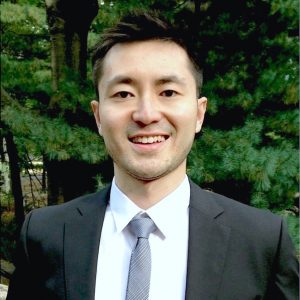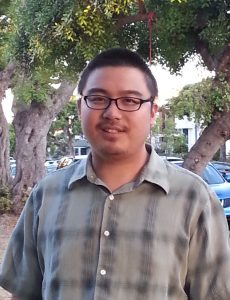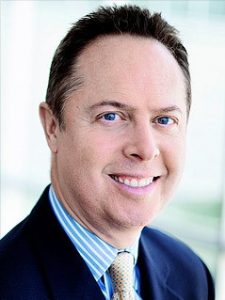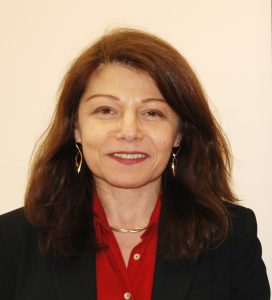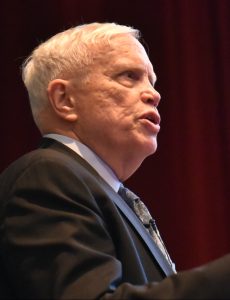Lee Ohanian on Solar Roof Mandates
Professor Lee Ohanian writes in today’s San Francisco Chronicle that “California’s solar rooftop mandate doesn’t make economic sense”.
This month, the California Energy Commission voted to require that almost all new California housing include rooftop solar panels. The commission estimates that after three years, the solar mandate will have the same effect on carbon reduction as eliminating 115,000 cars. But this represents only 0.8 percent of California’s registered motor vehicles. With California building about 100,000 homes each year, this relatively small reduction in carbon emissions may increase new home construction costs by as much as $9 billion.
California’s rush into renewables is premature.
This unprecedented mandate will not reduce carbon emissions significantly because California electricity generation is powered primarily by natural gas, which produces less carbon than cars. Transportation is the largest source of greenhouse gases in California, producing more than twice as much as electricity generation.
Addressing the state’s failure to build roads and houses is much more important in reducing carbon emissions than turning every new house rooftop into an electrical generator.
There are fewer miles of serviceable roads in California today than in the 1990s, which means that California drivers burn tons of fossil fuel while sitting in traffic. Los Angeles drivers spend about 150 percent more time in traffic than the average U.S. driver, which costs L.A. drivers about $3,500 per year.
A related problem is that California’s housing supply does not come close to keeping up with demand. California’s housing shortage has increased home prices enormously in coastal cities and is causing a growing number of workers to commute long distances from locations with relatively affordable housing, such as the Central Valley, to work in areas with high-paying jobs, including Silicon Valley, the Bay Area and Los Angeles. In 2016, 471,000 drivers commuted to LosAngeles daily from another county, and California is home to the three U.S. cities with the greatest share of workers commuting at least three hours per day.
The new solar rooftop mandate will also raise housing and business costs, and California’s disproportionate bet on solar energy will probably have the unintended consequence of reducing future energy reliability and increase the possibility of brownouts.
Solar energy has the major drawback that its production peaks when residential demand is low, and it plummets late in the day when demand peaks. This gross imbalance between supply and demand leads to bizarre market outcomes, including California producing so much power at midday that it pays Arizona to take the excess production to prevent an electrical grid overload.
The large imbalance between supply and demand also stresses conventionally generated electricity production, which operates at inefficient low levels during midday, but then must increase production extremely rapidly in the late afternoon. As California increases its solar power share, this tightrope act of matching supply and demand becomes increasingly complicated and will tend to increase brownouts as operators struggle to keep up with demand.
The cost of cutting carbon with rooftop solar is high. The Energy Commission estimates that the solar mandate will raise construction costs by about $9,500 per home. Cost estimates by builders, however, which include the mandate’s additional requirement of more efficient appliances, lighting, windows and insulation, are $30,000 in higher constructioncosts. But even the commission’s low estimate drives up the already high cost of California housing, where only 30 percent of households can afford the median home price of nearly $540,000. This will push even more Californians further away from large job centers, increase commuting times and further increase carbon emissions from autos.
The Energy Commission counters that lower future energy costs would more than offset their estimate of additional construction costs. But if solar panels, extra insulation, thermal windows and highly energy-efficient appliances and lighting were such a great deal, then consumers would demand them, and builders would build them without any state arm-twisting. The commission seems to have chosen a mandate because consumers don’t value these energy-saving items nearly as much as the commission thinks they should.
Sensibly adopting renewables on such a major scale requires waiting until new technology is developed that can feasibly store renewable energy. Waiting would also allow California to assess alternative options to reduce carbon, including emerging technologies that capture carbon, and that turn carbon into ethanol, as well as consider further development of large-scale solar power generation, which generates electricity at about half the cost of rooftop solar.
In the meantime, it is straightforward for California to reduce carbon — build more roads, build more houses, and enjoy not only less carbon but more economic growth, lower housing costs and more time outside of our cars.

